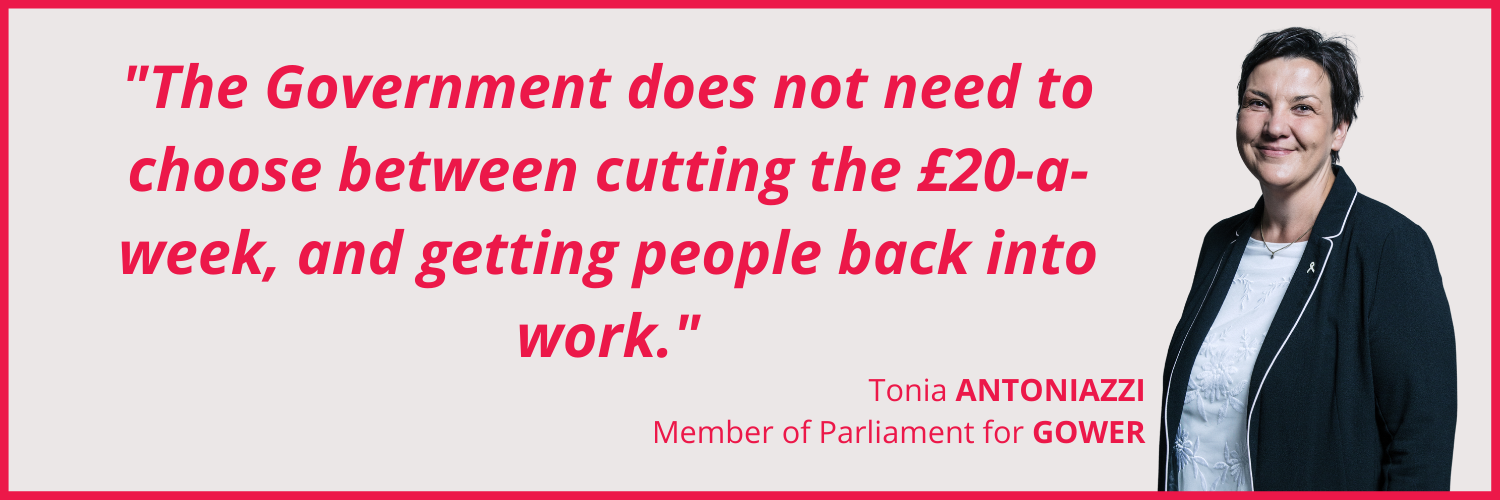|
In March 2020, when we were facing the economic fallout of the pandemic, the Government recognised that our social security rates were too low to protect families and individuals when they need it most. The Government did the right thing and increased Universal Credit and Working Tax Credit by £20 a week. This uplift has been vital to so many.
However, this £20 a week is scheduled to be cut from 6th October. I firmly believe that Universal Credit should not be reduced. If the reduction does go ahead, it will cost millions of families an estimated £1,000 a year and support for those out of work will be left at its lowest level in decades. Amongst those affected are 5300 families in Gower. According to official data, the number of people claiming Universal Credit doubled from March 2020 to March 2021, going from 3 million to 6 million. In July 2021, the number of Universal Credit claimants was 5.9 million, reflecting the fact that we still haven’t recovered from the pandemic, and won’t for some time. Cross party politicians in Westminster have called for the £20 uplift to be made permanent, including the six previous Secretaries of State for Work in Pensions since 2010, as well as the devolved administrations in Wales, Scotland and Northern Ireland, who joined forces to write a joint letter of concern to the DWP. I fully support these interventions, which highlight that this cut will be hugely detrimental. The Government has maintained that it is now focussing on supporting people back into work. Whilst I’m fully supportive of efforts to get people back in to work, this doesn’t mean much when the fact remains that so many people on Universal Credit are working and rely on UC to top up their wages. Furthermore, with the economy still recovering, there simply isn’t the same level of opportunity. The Government does not need to choose between cutting the £20 a week, and getting people back into work. What this £20 uplift has highlighted, according to organisations like the Joseph Rowntree Foundation, is that our social security system was wholly inadequate pre-pandemic. Analysis from 2019/2020 showed that over half of people in working-age families receiving income-related benefits were below the poverty line and almost 2 in 5 were in deep poverty. The main rate of out-of-work support was at its lowest level in real terms since around 1990 and its lowest ever as a proportion of average wages. The Government should learn from the pandemic and make real, tangible reforms to our social security system. The Government has committed to ‘levelling up’. Is this what levelling up looks like? Further information Devolved administrations call for reversal of UK Government’s £20 Universal Credit cut | GOV.WALES Our social security lifeline: Is it strong enough? | JRF Fighting UK Poverty - Turn2us Comments are closed.
|
News Archive
May 2024
Categories
All
|
